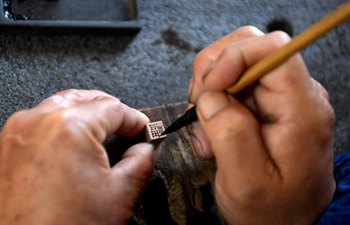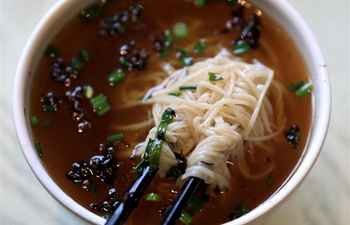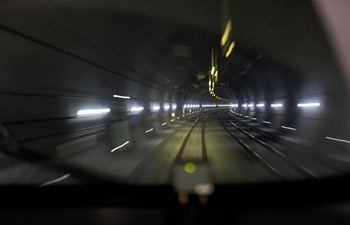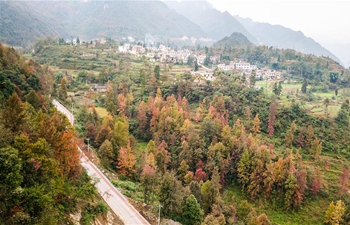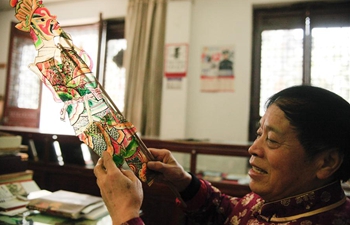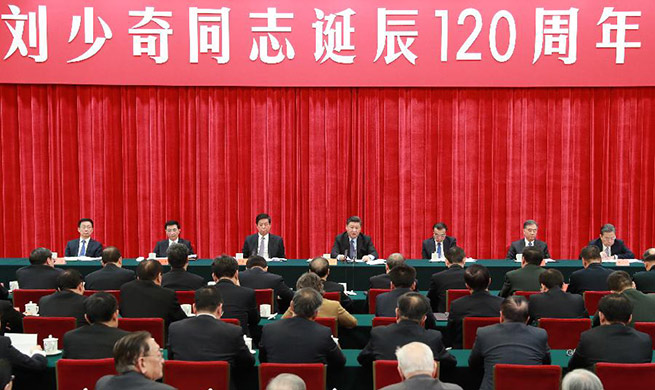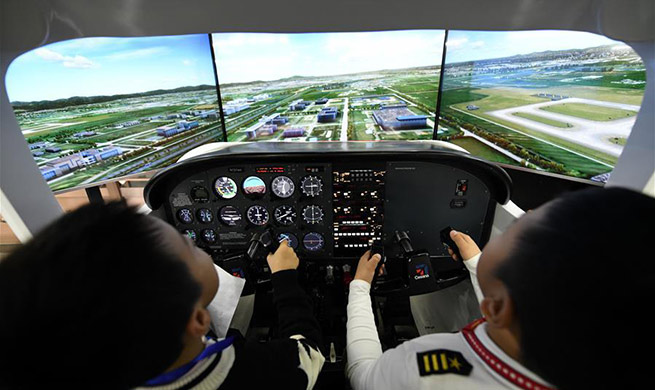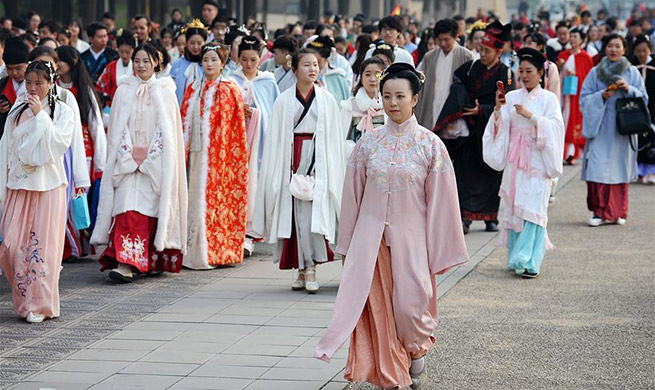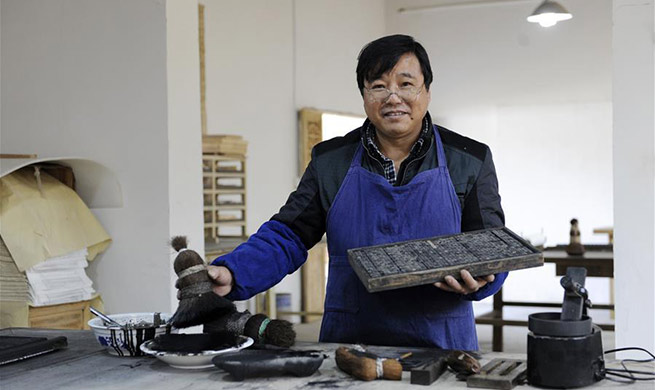by Jamal Hashim
BAGHDAD, Nov. 24 (Xinhua) -- The visit of Masoud Barzani, leader of Kurdistan Democratic Party, to Iraqi capital Baghdad is seen by analysts as a chance to mend ties between Baghdad and Erbil after the disputed Kurdish independence referendum last year.
The visit came a few days after the two sides agreed to resume crude oil exports of Kirkuk oilfield through Kurdish pipeline to Turkey, which was seen as an early victory of the new Iraqi Prime Minister Adel Abdul Mahdi.
Mahdi is known for good relations with Kurdish leaders in the semi-autonomous Kurdistan region.
On Nov. 22, Barzani made his first visit to Baghdad after the controversial referendum on the independence of the Kurdistan region and other disputed areas on Sept. 25 last year.
Barzani, accompanied by a high-level delegation, met with top Iraqi official and political leaders, including Mahdi, Iraqi Parliament Speaker Mohammed al-Halbousi and leader of the Fath Coalition, Hadi al-Ameri.
He hailed Mahdi's election as good news, noting that the prime minister played "a major role in building the new Iraq despite the difficult problems we faced, and had a major role in drafting of the constitution."
Barzani expressed his full support for Mahdi, adding that "we will continue working together in the future to strengthen bilateral relations."
Mahdi praised Barzani as a well-known "old struggler" and "one of the leaders of the democratic transformation in Iraq and the overthrow of dictatorship."
In his two-day visit, Barzani also visited the holy Shiite city of Najaf, some 160 km south of Baghdad, and held a rare meeting with prominent Shiite cleric Muqtada al-Sadr, who backs Sairoon Coalition, the frontrunner of the country's May 12 parliamentary elections.
Ibrahim al-Ameri, an Iraqi political analyst, told Xinhua that the visit of Barzani is positive and useful.
"This is the beginning of the easing of tensions between Baghdad and Erbil after the crisis on Oct. 16 last year," al-Ameri said, referring to the Iraqi government forces' takeover of the disputed areas including Kirkuk province, which is claimed by both Baghdad and Erbil.
"I hope Barzani's visit and the oil deal are the first significant steps for the beginning of a longer dialogue between the two sides," al-Ameri added. "It is useful for the people of Kurdistan and would boost the stability of Iraq in general."
Al-Ameri believes that Mahdi will succeed in resolving the differences between Baghdad and Erbil, as he has strong relations with the Kurds and understands their situation.
Al-Ameri said that the Nov. 16 oil deal encouraged Barzani to take the next step of visiting Baghdad.
The oil deal enabled Baghdad to resume oil exports between 50,000 to 100,000 barrels per day from Kirkuk to the Turkish port of Ceyhan through the Kurdish pipeline.
The resumption of the oil exports came after about two weeks following the U.S. sanctions on Iran.
Following the controversial Kurdish independence referendum, the only way to export Kirkuk oil to international markets was through Iran by tanker trucks, al-Ameri explained.
As a result of U.S. sanctions on Iran, Iraq has stopped using Iran's route, pushing Baghdad to accept the deal with the Kurds, he said.
Ali al-Qaradaghi, a Kurdish economic expert, told Xinhua he believes that Barzani's visit to Baghdad and Najaf is part of the soft policy by the Kurdish leader.
The resumption of oil exports could strengthen Erbil's hand in negotiations with Baghdad to solve the most important pending issues such as distribution of oil wealth, larger share of federal budget and regaining control of the disputed areas, according to al-Qaradaghi.
"The export of Kirkuk oil will be a strong point for the Kurdish regional delegations who visit Baghdad for negotiations over the budget," al-Qaradaghi said.
He added that Kurds can use this deal as a "bargaining chip to ensure the Kurdish share in 2019 federal budget because part of Iraqi oil will be under the control of Kurdistan Regional Government (KRG)."
The Kurds want their share of federal budget to return to its level of 17 percent before 2014, which was reduced by former Prime Minister Nuri al-Maliki to zero over dispute of independent oil sales of the Kurds.
Al-Maliki's successor Haider al-Abadi resumed payments of federal budget to KRG this year to 12.5 percent.
Baghdad and Erbil have a long way to find a compromise over their pending issues, including the region's portion of the annual budget, a problem that the two sides have struggled to agree on for several years.




